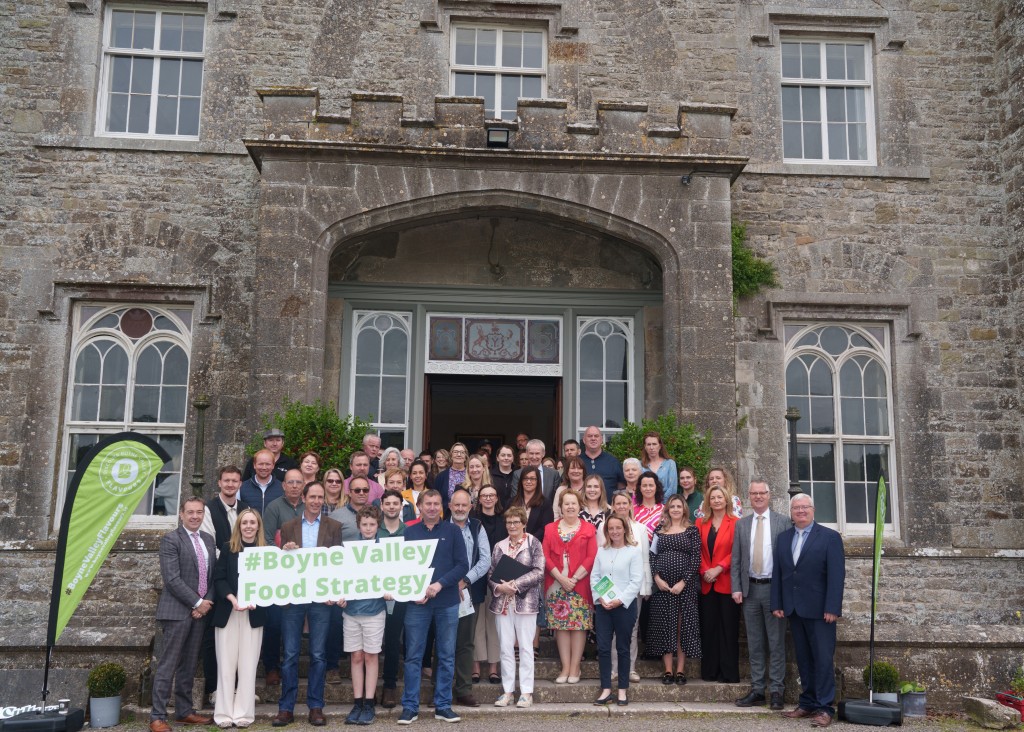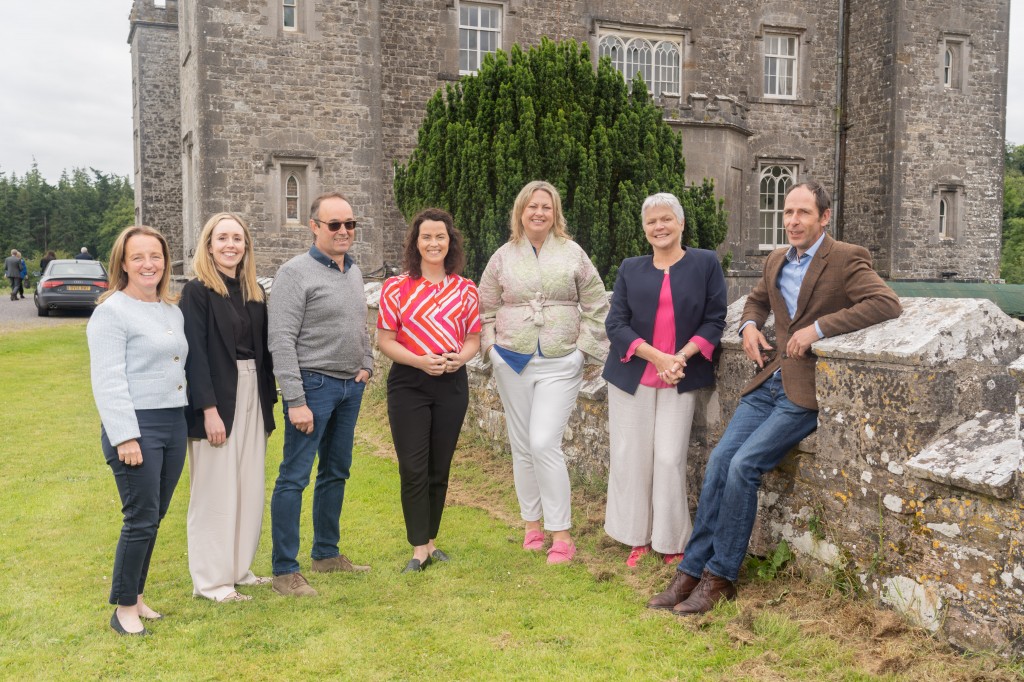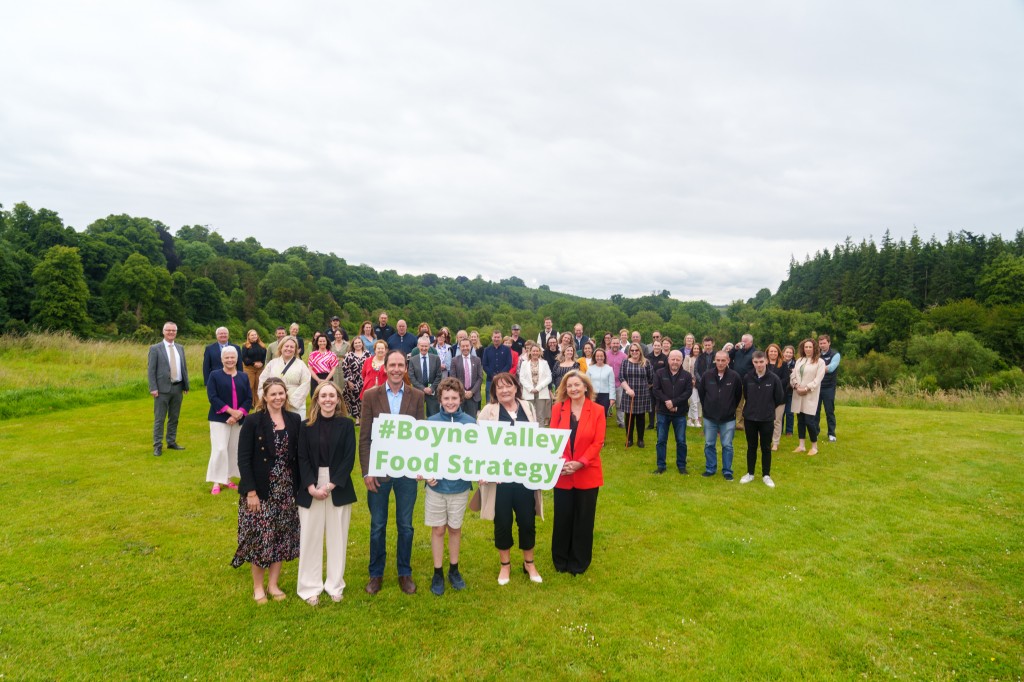 The Boyne Valley region has some serious advantages when it comes to promoting it as a visitor destination, not least its history and natural beauty. And, when it comes to food tourism, a group of dedicated people has done tremendous work in recent years to ensure that producers are at the heart of ambitions for the Boyne Valley – and that the outcome will transcend county boundaries to showcase the region as a whole. Especially exciting is the development of The Centre of Food Culture, Boyne Valley which, as explained below, is the first of its kind on the island of Ireland. The following press release outlines the region’s strategy for the next five years – and it will be very interesting to follow its progress.
The Boyne Valley region has some serious advantages when it comes to promoting it as a visitor destination, not least its history and natural beauty. And, when it comes to food tourism, a group of dedicated people has done tremendous work in recent years to ensure that producers are at the heart of ambitions for the Boyne Valley – and that the outcome will transcend county boundaries to showcase the region as a whole. Especially exciting is the development of The Centre of Food Culture, Boyne Valley which, as explained below, is the first of its kind on the island of Ireland. The following press release outlines the region’s strategy for the next five years – and it will be very interesting to follow its progress.
To this end, in the historic surroundings of Slane Castle, the new Boyne Valley Food Development Strategy for 2024-2028, was recently launched by Kevin Sheridan, Chairperson Boyne Valley Flavours, Olivia Duff, Chairperson The Centre of Food Culture, Boyne Valley, Kieran Kehoe, Chief Executive, Meath County Council, Thomas McEvoy, Director of Services, Louth County Council and Mark Mohan, Manager – Ireland’s Ancient East, Fáilte Ireland.
This innovative strategy is designed to position the region as a leading food destination where producers are at the heart of our food culture. Developed in coordination with Discover Boyne Valley Flavours and The Centre of Food Culture, Boyne Valley, with the support of both Meath and Louth County Councils, and Fáilte Ireland, this strategic initiative aims to strengthen the local food ecosystem, promote sustainability, and enhance the Boyne Valley’s reputation for food and craft drinks.
The strategy brings together three pillars: the Discover Boyne Valley Flavours food and craft drinks network, Food Tourism, and The Centre of Food Culture, Boyne Valley. These initiatives aim to realise the vision for the region to be recognised for its collaborative approach to developing food as a sustainable economic sector and a food destination where our producers are at the heart of our food culture.
Olivia Duff Chairperson, The Centre of Food Culture, Boyne Valley emphasised the groundbreaking aspects of the strategy: “Thanks to our thriving food network and the agency support surrounding it, the Boyne Valley has led the charge in celebrating Irish food and culture, and this is set to continue with the development of The Centre of Food Culture, Boyne Valley – the first of its kind on the island of Ireland. The Centre of Food Culture, will act as a catalyst for a step change about how we value Irish food culture, shared identity, past present and future. This strategy sets out the road map for its exciting development for the next five years and its place in the wider food strategy for the region.”
This new strategy represents the region’s progress in becoming a top food and drink destination in Ireland’s Ancient East. This success is the result of collaboration between counties Meath and Louth and various industries, local authorities, and state agencies, including Fáilte Ireland.
Kevin Sheridan, Chairperson Discover Boyne Valley Flavours: “This strategy lays out a pathway for the Boyne Valley Flavours to continue to grow and thrive over the next five years. With the support of the two local authorities our community of food producers and food professionals will build on our past achievements to ensure the Boyne Valley is a place with food at its heart.”
This strategy builds on the first food strategy for the region covering the period 2016-2021, which focused on a vision “For the Boyne Valley region to be recognised as the leading national food and drinks destination.”
Since then, Discover Boyne Valley Flavours has achieved significant successes, winning the title of Ireland’s “Foodie Destination” in 2016, being recognised by the National Geographic Traveller as one of the “World’s Best Food Destinations” in 2019, and winning Most Innovative Food or Beverage Marketing Campaign for a Destination at the 2019 World Food Travel Association’s Food Trekking Awards. The network now has almost 100 food and drink businesses as members.
 Since the completion of the previous strategy, new initiatives have been developed in the region, including The Centre of Food Culture, Boyne Valley, established in late 2022.
Since the completion of the previous strategy, new initiatives have been developed in the region, including The Centre of Food Culture, Boyne Valley, established in late 2022.
The Boyne Valley Food Development Strategy represents a five year roadmap for our craft food and drink producers, food service and hospitality industry. The ambitious plan brings together various projects and activities in one document working towards a collective vision for food across the Boyne Valley. It includes a five year development approach for Discover Boyne Valley Flavours, the Centre of Food Culture and Food in Tourism across the Boyne Valley including the continued development of the sea louth initiative.
The launch of this new strategy is an important milestone in the history of the food, agriculture and tourism industries in the Boyne Valley reflecting the ambition of the region to build a thriving and enduring food and drink community and home to the first national centre of food culture.
Ella Ryan, Development Manager, The Centre of Food Culture, Boyne Valley: “We are delighted to launch the action plan for The Centre of Food Culture, Boyne Valley, as one of the three pillars of the Boyne Valley Food Development Strategy 2024 – 2028. This is an exciting time for us at The Centre of Food Culture, Boyne Valley, as we are beginning to see the first of our projects and events coming to life and the establishment of this pioneering project with national reach, originated in the Boyne Valley”
Emma Gill, Boyne Valley Food Business Development Officer: “We are thrilled to unveil the Boyne Valley Food Development Strategy 2024 – 2028, an ambitious plan that emphasises collaboration among local stakeholders to elevate our region as a premier food tourism destination. This strategy is a testament to our commitment to supporting local producers, fostering sustainable growth, and driving economic prosperity across the Boyne Valley region. Building on the success of our previous strategy, we are dedicated to making our food sector even stronger and more vibrant for the future.”









